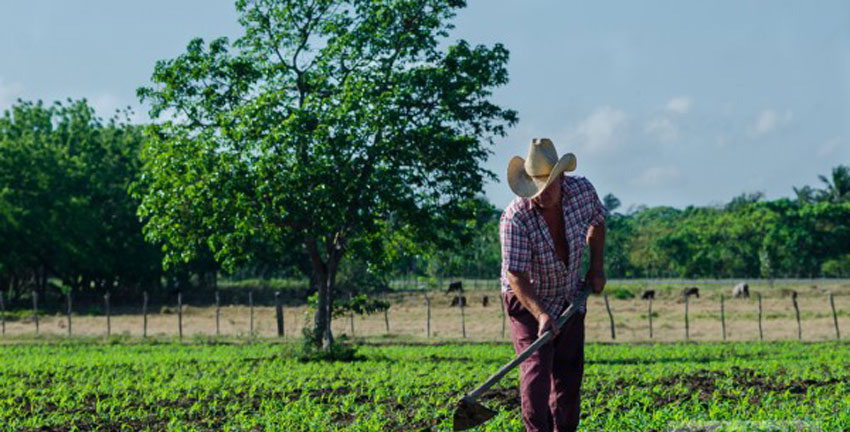
The three southern municipalities in the province of Las Tunas will benefit from a project aimed at increasing resilience in agricultural production and thus guaranteeing food security, a significant contribution to Cuba's plan for climate change, known as Tarea Vida (Life Task).
Las Tunas, Cuba.- Amancio, Colombia and Jobabo are the chosen municipalities from this territory and the eastern region, considered among the 78 in the country with the greatest impact in terms of intensity of agricultural drought for more than 50 days a year, a criterion that classifies Cuba as a "high risk" country according to the Index of Vulnerability and Adaptation to Climate Change in Latin America and the Caribbean.
José Raúl Acosta Artiles, the communication specialist for the project, told the Cuban News Agency that since these municipalities are highly vulnerable to the impacts of climate change, it is urgent to materialize improved ecosystem services, based on landscape management using agroforestry, silvopastoral systems, reforestation and assisted natural regeneration of forests.
In this sense, the Cuban Association of Agricultural and Forestry Technicians (ACTAF) in Las Tunas reported on the participation in the three initiation workshops of the project, recently held through video conferences, an opportunity in which the delegations of Agriculture and organizations of the civil society of the selected municipalities approached topics such as Local Development Management in updating the Cuban socio-economic model.
Identified as the first approved purpose of this type in Cuba, ecosystems will develop greater adaptability to climate change with its execution, especially the regulation of the hydrological cycle, through rehabilitation and management of the landscape that improves the productivity and sustainability of agriculture ecosystems, Acosta Artiles stressed.
It is a significant contribution to Cuba's plan to face climate change, the Life Task, hence it plans to benefit 240 thousand people and mitigate the emission of around 2.7 million tons of greenhouse gases, working with 51 thousand 713 family farmers, in particular 23 thousand 788 women.
The actions include the introduction of new agroforestry modules in areas that are mostly covered by marabou and degraded pastures, investments in technology, machinery, equipment, and supplies, as well as the implementation of multiple cropping systems that maintain soil coverage throughout the year.
The initiative, organized under the acronym IRES, proposes increasing the climate resilience of rural households and communities through the rehabilitation of productive landscapes in selected localities of the Republic and is financed by the Green Climate Fund in association with the Food and Agriculture Organization of the United Nations (FAO) and the Ministry of Agriculture (MINAG).
Along with the three municipalities of Las Tunas, Corralillo, Quemado de Güines and Santo Domingo in the province of Villa Clara; and Los Arabos, in Matanzas, will also benefit.





